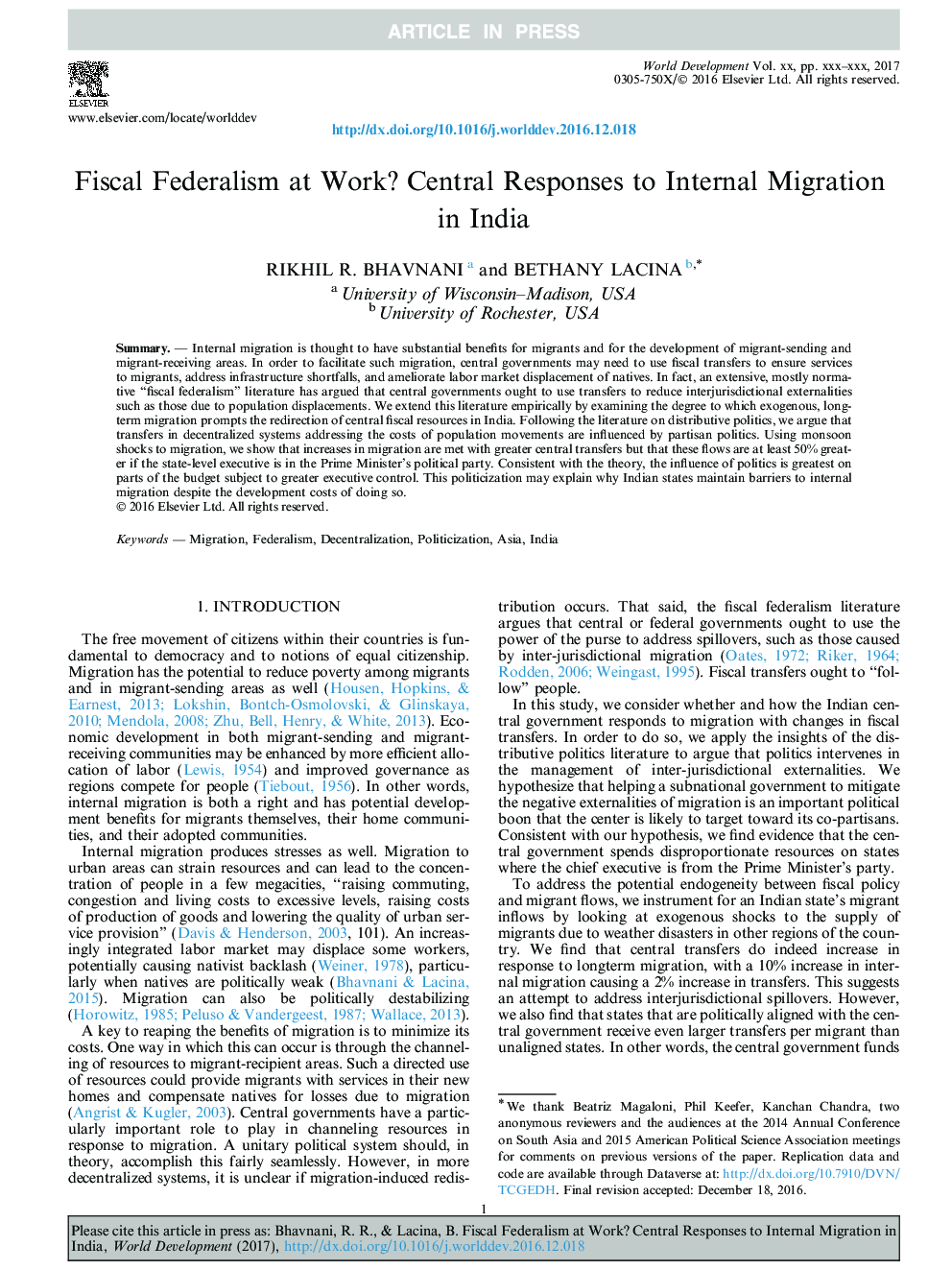| Article ID | Journal | Published Year | Pages | File Type |
|---|---|---|---|---|
| 5105304 | World Development | 2017 | 13 Pages |
Abstract
Internal migration is thought to have substantial benefits for migrants and for the development of migrant-sending and migrant-receiving areas. In order to facilitate such migration, central governments may need to use fiscal transfers to ensure services to migrants, address infrastructure shortfalls, and ameliorate labor market displacement of natives. In fact, an extensive, mostly normative “fiscal federalism” literature has argued that central governments ought to use transfers to reduce interjurisdictional externalities such as those due to population displacements. We extend this literature empirically by examining the degree to which exogenous, longterm migration prompts the redirection of central fiscal resources in India. Following the literature on distributive politics, we argue that transfers in decentralized systems addressing the costs of population movements are influenced by partisan politics. Using monsoon shocks to migration, we show that increases in migration are met with greater central transfers but that these flows are at least 50% greater if the state-level executive is in the Prime Minister's political party. Consistent with the theory, the influence of politics is greatest on parts of the budget subject to greater executive control. This politicization may explain why Indian states maintain barriers to internal migration despite the development costs of doing so.
Related Topics
Social Sciences and Humanities
Economics, Econometrics and Finance
Economics and Econometrics
Authors
Rikhil R. Bhavnani, Bethany Lacina,
